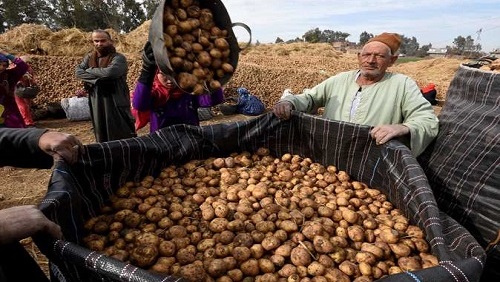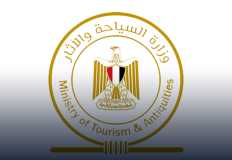
The National Food Safety Authority announced on Sunday that Saudi Arabia and Sudan were the top destinations for Egyptian food exports between March 15th and 21st, while Ukraine was the leading source of Egypt's food imports.
From March 15th to 21st, the National Food Safety Authority's weekly report detailed the processing of 5,320 food export shipments, totaling approximately 280,000 tons. This represents a 60,000-ton increase over the previous week, involving 1,545 exporting companies and 580 product types, including vegetables, fruits, flour, and other food items.
Potatoes led vegetable exports at 57,000 tons, followed by
mixed frozen vegetables and beans, each at 8,000 tons. Total vegetable exports
comprised 72 items, amounting to approximately 100,000 tons. Citrus fruits
topped fruit exports at 65,000 tons, with strawberries at 18,000 tons and other
fruits at 3,000 tons. Overall fruit exports included 34 items, totaling about
86,000 tons.
Saudi Arabia, Sudan, Russia, and the Netherlands were the
primary recipients of these Egyptian exports, among a total of 186 importing
countries. Safaga Port handled the most export shipments, with 800, followed by
Cairo Airport Port (730) and Alexandria Port (720).
In preparation for assuming responsibility for issuing
export fitness certificates in 2025 under a new mechanism, the National Food
Safety Authority issued 1,025 health certificates last week.
Imported food shipments totaled 1,850, approximately 334,000
tons, involving 853 importing companies and 240 product types, including wheat,
various oils, and soybeans. Ukraine was the leading import source, followed by
Romania, Russia, and the United States.
Alexandria Port received the most import shipments (568),
followed by Cairo Airport Port (340) and Damietta Port (280).
The General Administration for Registration and Licensing of Special Foods registered 108 products and 13 companies, conducted two regulatory inspections, examined 345 new products, and issued 10 free sale certificates.





